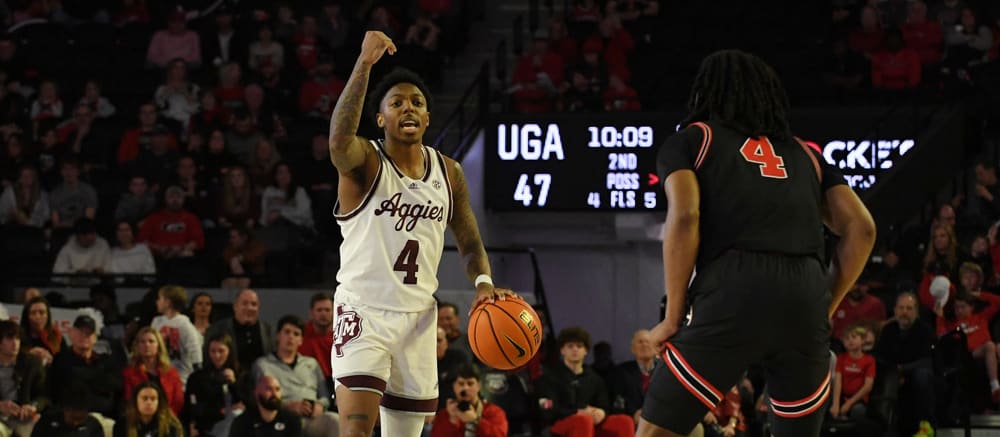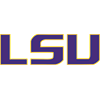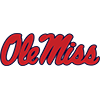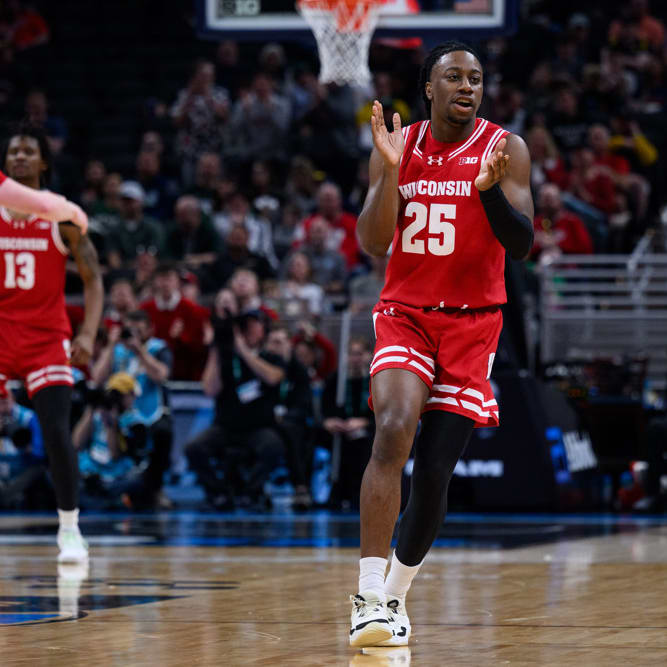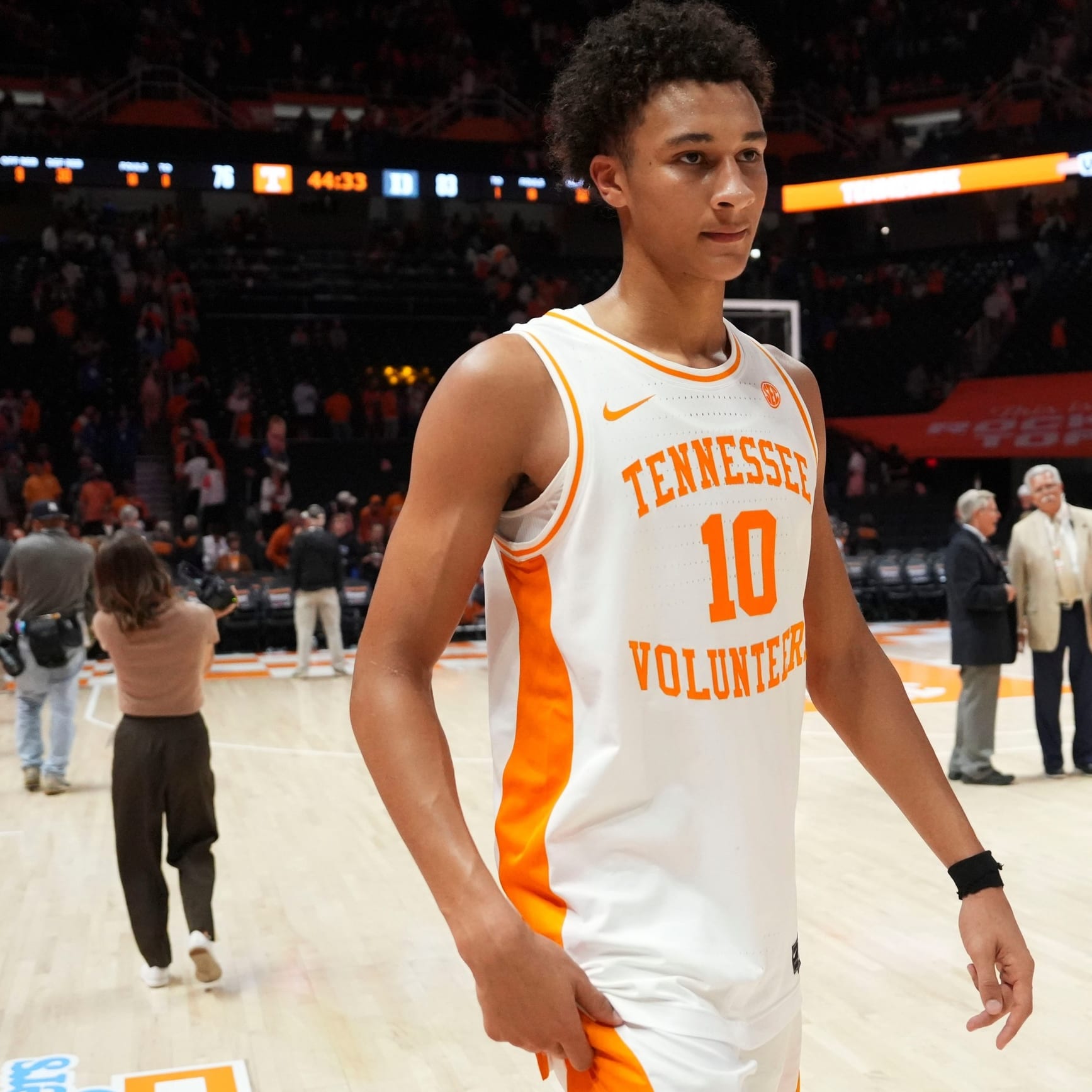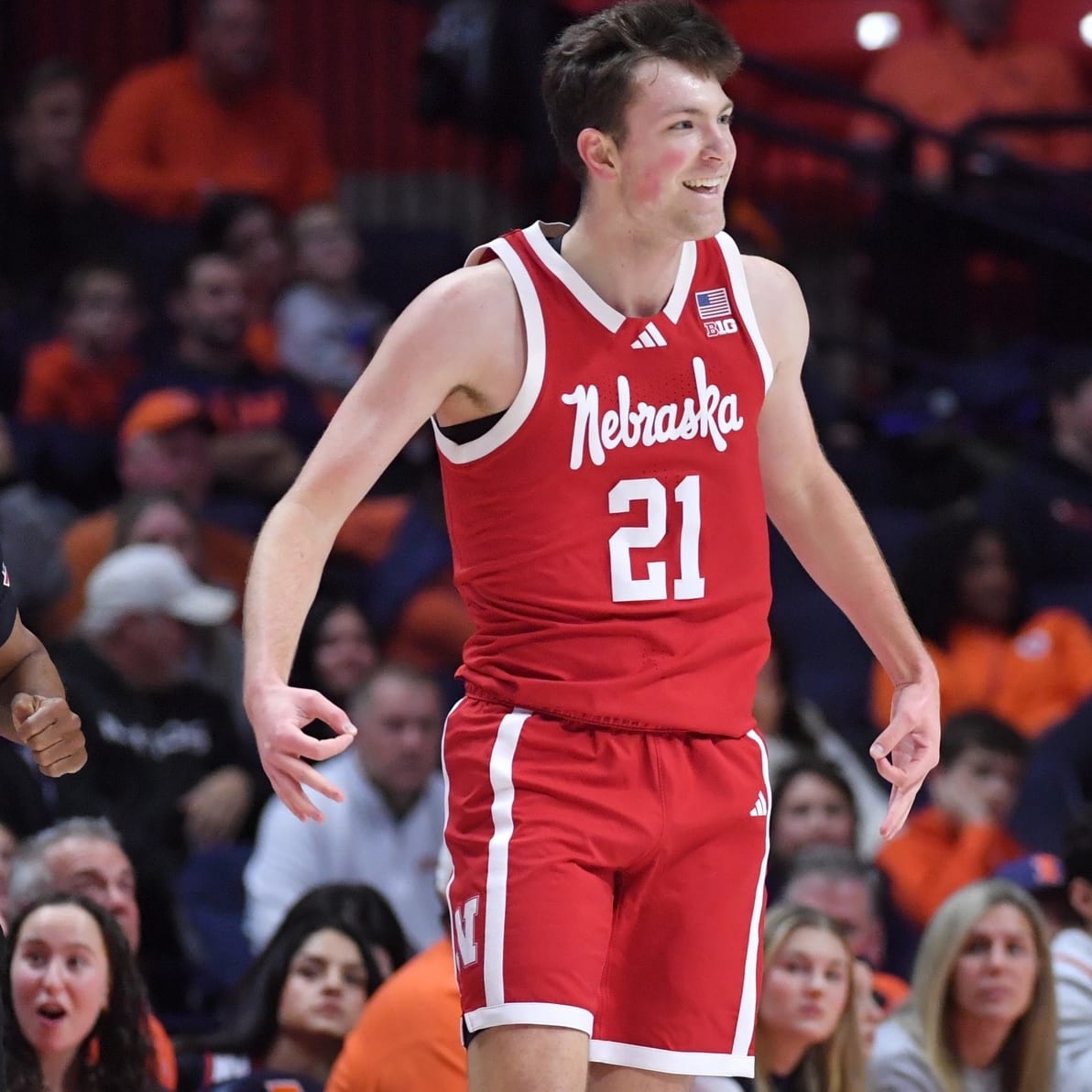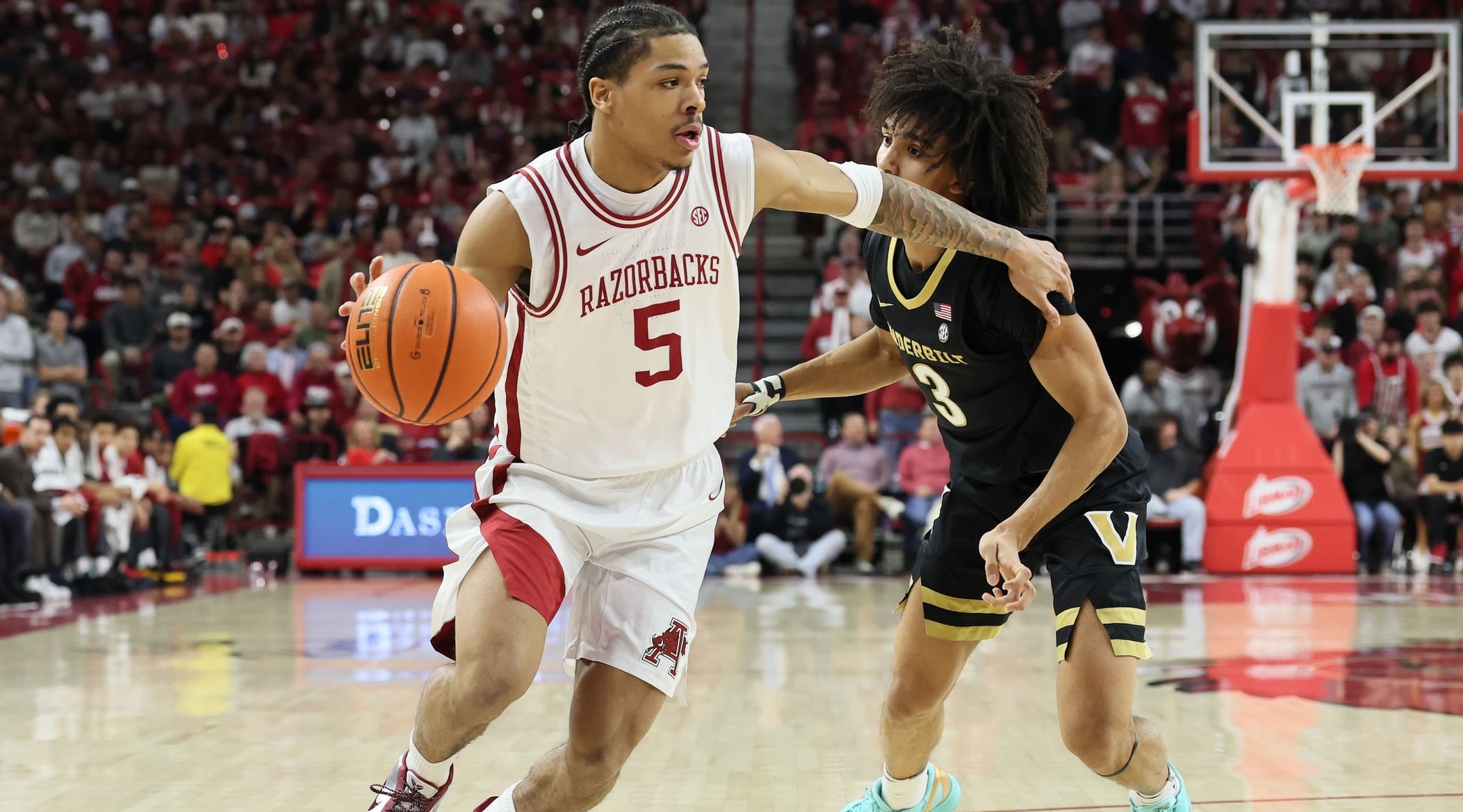On the eve of Selection Sunday, we'll take a look at the bubble teams vying for a spot in the NCAA Tournament. Who's in, who's on the fringe, and who's got some work left to do? Of course, all of this is subject to change as the conference tournaments begin in earnest. Beware the dreaded bid stealers. Conference tournament winners that otherwise would have not made the big dance on resume alone will shrink the bubble. As always, the article simply cannot include every team on the bubble, so the list is not meant to be all-encompassing.
We'll be using a variety of measurements, including conference record, overall record, and the good ol' eye test to hash out which teams are worthy, and which teams should be left out in the cold. As a refresher, the NCAA Evaluation Tool (NET) is used, which takes into account a variety of factors, including individual game results, strength of schedule, game location, scoring margin, net offensive and defensive efficiency, and the quality of wins and losses. In addition, wins (and losses) are now separated into Quadrants, depending on the caliber of opponent as well as the location of wins. To simplify, Quadrant 1 wins are the most valuable and come against the strongest competition. Houston currently has the most Quadrant 1 wins with 13. By contrast, Quadrant 4 losses are the worst result, coming against inferior squads. Most teams have wins and losses in at least three quadrants, so it is important to not just look at Quadrant 1 wins, though those are certainly most likely to help a school's cause.
What matters more, big wins or bad losses? Should a sub-.500 conference record automatically preclude your squad from inclusion in the NCAA Tournament? How about a .500-record overall? How important is how a team is playing at the time of Selection Sunday? We'll tackle these queries and more in the annual Bubble Edition of the College Hoops Barometer.
UPGRADE
 South Florida – The Bulls have consistently been the best team in the American Conference this season, much to the surprise of many pundits after Florida Atlantic's run to the Final Four last year and subsequent return of virtually its entire squad. USF is 16-2 on the season and 23-6 overall. The argument against South Florida (assuming the Bulls do not run the table and win the AAC Tournament), is that they have just one Quadrant I win as compared to one Quadrant III loss and two Quadrant IV losses. To put another way, the worry is that they have not faced the caliber of competition of other programs in other conferences. In fact, on a few occasions, the Bulls have played down to their competition. However, when taking into account the full body of work, the Bulls should be included in the final field. Four of their losses occurred in the first six games of the season, USF recently had a 15-game winning streak snapped in the final regular season game of the season, and the Bulls also beat aforementioned FAU in the only matchup between the two this season thus far. Despite a NET rating of 78, USF more than deserves a slot.
South Florida – The Bulls have consistently been the best team in the American Conference this season, much to the surprise of many pundits after Florida Atlantic's run to the Final Four last year and subsequent return of virtually its entire squad. USF is 16-2 on the season and 23-6 overall. The argument against South Florida (assuming the Bulls do not run the table and win the AAC Tournament), is that they have just one Quadrant I win as compared to one Quadrant III loss and two Quadrant IV losses. To put another way, the worry is that they have not faced the caliber of competition of other programs in other conferences. In fact, on a few occasions, the Bulls have played down to their competition. However, when taking into account the full body of work, the Bulls should be included in the final field. Four of their losses occurred in the first six games of the season, USF recently had a 15-game winning streak snapped in the final regular season game of the season, and the Bulls also beat aforementioned FAU in the only matchup between the two this season thus far. Despite a NET rating of 78, USF more than deserves a slot.
 Colorado – Conversely, the NET rating of Colorado is 27, as the Buffs finished the Pac-12 slate with a stellar 13-7 record for third in the conference. While Colorado has just two Quadrant I wins, the Buffs have seven Quadrant II triumphs. Perhaps just as importantly, Colorado does not have any bad losses, going a perfect 13-0 in Quadrants III and IV combined. Colorado is also riding a six-game winning streak heading into the Pac-12 Tournament. The value of a solid power-conference record along with a squad that appears to be peaking at the right time should be enough for the Buffs to go dancing, even despite the lack of a significant amount of Quadrant I victories.
Colorado – Conversely, the NET rating of Colorado is 27, as the Buffs finished the Pac-12 slate with a stellar 13-7 record for third in the conference. While Colorado has just two Quadrant I wins, the Buffs have seven Quadrant II triumphs. Perhaps just as importantly, Colorado does not have any bad losses, going a perfect 13-0 in Quadrants III and IV combined. Colorado is also riding a six-game winning streak heading into the Pac-12 Tournament. The value of a solid power-conference record along with a squad that appears to be peaking at the right time should be enough for the Buffs to go dancing, even despite the lack of a significant amount of Quadrant I victories.
 Indiana State – The Sycamores have one of the most talked about players in the country this season in the form of Robbie Avila aka Cream Abdul-Jabbar. Unfortunately, Indiana State lost the Missouri Valley Conference Championship to Drake, leaving the Sycamores hanging leading up to Selection Sunday. Likewise, the Sycamore have only one Quadrant I victory as compared to four losses. Still, Indiana State is 4-1 in Quadrant II, undefeated at 10-0 in Quadrant III and has just one bad loss in Quadrant IV (12-1). The Sycamores pass the eye test for this writer, but the NET rating also holds up currently sitting at a stellar 29. Of course, a mid-major that does not win its conference tournament will still always have to sweat.
Indiana State – The Sycamores have one of the most talked about players in the country this season in the form of Robbie Avila aka Cream Abdul-Jabbar. Unfortunately, Indiana State lost the Missouri Valley Conference Championship to Drake, leaving the Sycamores hanging leading up to Selection Sunday. Likewise, the Sycamore have only one Quadrant I victory as compared to four losses. Still, Indiana State is 4-1 in Quadrant II, undefeated at 10-0 in Quadrant III and has just one bad loss in Quadrant IV (12-1). The Sycamores pass the eye test for this writer, but the NET rating also holds up currently sitting at a stellar 29. Of course, a mid-major that does not win its conference tournament will still always have to sweat.
CHECK STATUS
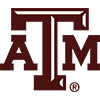 Texas A&M – The Aggies have a rollercoaster of a resume. A&M has five Quadrant I wins and four Quadrant III losses. Residing in arguably the toughest conference in the nation, the Aggies have vanquished Kentucky and Tennessee, while also beating likely tournament squad Florida and bubble team Mississippi State. On the downside, they've lost some dismal conference games to the likes of Vandy and Arkansas, while also falling to bubble teams Memphis and Virginia (more on the Cavaliers below). A&M has a NET rating of 47, sitting at .500 in the SEC and 18-13 overall. A&M's inclusion or exclusion will likely come down to this argument; should the Aggies get rewarded for playing in an elite conference, or have they still not done enough with their opportunities? Put a different way, should the SEC get a seventh or eighth team as opposed to a mid-major? Stay tuned to find out.
Texas A&M – The Aggies have a rollercoaster of a resume. A&M has five Quadrant I wins and four Quadrant III losses. Residing in arguably the toughest conference in the nation, the Aggies have vanquished Kentucky and Tennessee, while also beating likely tournament squad Florida and bubble team Mississippi State. On the downside, they've lost some dismal conference games to the likes of Vandy and Arkansas, while also falling to bubble teams Memphis and Virginia (more on the Cavaliers below). A&M has a NET rating of 47, sitting at .500 in the SEC and 18-13 overall. A&M's inclusion or exclusion will likely come down to this argument; should the Aggies get rewarded for playing in an elite conference, or have they still not done enough with their opportunities? Put a different way, should the SEC get a seventh or eighth team as opposed to a mid-major? Stay tuned to find out.
 Virginia – It's wild to think that a team that started the season 9-1, then had an eight-game winning streak in the middle of the year, all while residing in the vaunted ACC, could actually be in danger of missing the big dance. It's even crazier to think that if the Hoos falter in their opener in the ACC Tournament, that the conference may only have two representatives during March Madness (North Carolina and Duke). The Hoos have struggled down the stretch, losing four of their last seven contests. All four losses were by double-digits. The NET rating for the Hoos has dropped to 51. However, Virginia does not have any Quadrant III or Quadrant IV losses. Virginia's resume also has an early-season win over Florida as well as triumphs over fellow bubble teams Texas A&M and Memphis, which should help its cause. While it seems highly unlikely that the ACC garners just two bids to the big dance, Virginia stay may have some work to do to ensure its entry.
Virginia – It's wild to think that a team that started the season 9-1, then had an eight-game winning streak in the middle of the year, all while residing in the vaunted ACC, could actually be in danger of missing the big dance. It's even crazier to think that if the Hoos falter in their opener in the ACC Tournament, that the conference may only have two representatives during March Madness (North Carolina and Duke). The Hoos have struggled down the stretch, losing four of their last seven contests. All four losses were by double-digits. The NET rating for the Hoos has dropped to 51. However, Virginia does not have any Quadrant III or Quadrant IV losses. Virginia's resume also has an early-season win over Florida as well as triumphs over fellow bubble teams Texas A&M and Memphis, which should help its cause. While it seems highly unlikely that the ACC garners just two bids to the big dance, Virginia stay may have some work to do to ensure its entry.
 St. John's – The NET rating is kinder for the Johnnies, who currently sit at 39. St. John's has three Quadrant I wins, including an impressive recent triumph over a ranked Creighton squad. The Red Storm has also beaten Big East foe and fellow bubble squad Villanova twice this season. On the downside, the Johnnies do have a Quadrant III loss and sit just 11-9 in Big East play. Still, if how the teams are playing down the stretch is taken into account, St. John's could have an edge. The Red Storm has won five-straight contests heading into the Big East Tournament. Perhaps one more win would ice it, but the Johnnies should be feeling decently about their chances, especially given their improved play of late.
St. John's – The NET rating is kinder for the Johnnies, who currently sit at 39. St. John's has three Quadrant I wins, including an impressive recent triumph over a ranked Creighton squad. The Red Storm has also beaten Big East foe and fellow bubble squad Villanova twice this season. On the downside, the Johnnies do have a Quadrant III loss and sit just 11-9 in Big East play. Still, if how the teams are playing down the stretch is taken into account, St. John's could have an edge. The Red Storm has won five-straight contests heading into the Big East Tournament. Perhaps one more win would ice it, but the Johnnies should be feeling decently about their chances, especially given their improved play of late.
DOWNGRADE
 New Mexico – For once, the Lobos will not get penalized for residing in the Mountain West Conference, as six teams currently reside in the NET's top 36 teams. UNM currently sits at 28. However, the Lobos have just two Quadrant I wins, along with an ugly Quadrant IV loss. Moreover, the Lobos are tied for sixth in the Mountain West standings at 10-8 in conference play. If the Lobos do not get any more wins, is it likely that the committee will choose a staggering six squads from this conference? Even though the best 68 teams are supposed to make the NCAA Tournament regardless of conference, the Mountain West has never had more than five entries (2013), and a so-called non-power conference has only gained six spots once since the tournament expanded in 1985. Add in losses in four of its last six games entering the conference tourney, and New Mexico could face an uphill struggle to get access to March Madness.
New Mexico – For once, the Lobos will not get penalized for residing in the Mountain West Conference, as six teams currently reside in the NET's top 36 teams. UNM currently sits at 28. However, the Lobos have just two Quadrant I wins, along with an ugly Quadrant IV loss. Moreover, the Lobos are tied for sixth in the Mountain West standings at 10-8 in conference play. If the Lobos do not get any more wins, is it likely that the committee will choose a staggering six squads from this conference? Even though the best 68 teams are supposed to make the NCAA Tournament regardless of conference, the Mountain West has never had more than five entries (2013), and a so-called non-power conference has only gained six spots once since the tournament expanded in 1985. Add in losses in four of its last six games entering the conference tourney, and New Mexico could face an uphill struggle to get access to March Madness.
 Utah – In the final season of the Pac-12, a sub-.500 record within conference play could doom the Utes. Utah lost its last two games of the season, including a dismal defeat to last place Oregon State, dropping to 9-11 in the Pac-12. Working in Utah's favor are four Quadrant I wins, including impressive early-season triumphs over BYU and Saint Mary's. Utah also pummeled a stellar Washington State squad, and also beat fellow bubble teams Wake Forest and Colorado. Utah has a NET rating of 52. However, the Utes did lose to St. John's, none of their big wins came since the calendar turned to 2024, and Utah has lost six of its last nine outings. The Utes do not have any Quadrant IV losses, but the lackluster play down the stretch along with the sub-.500 conference record may ultimately keep Utah out.
Utah – In the final season of the Pac-12, a sub-.500 record within conference play could doom the Utes. Utah lost its last two games of the season, including a dismal defeat to last place Oregon State, dropping to 9-11 in the Pac-12. Working in Utah's favor are four Quadrant I wins, including impressive early-season triumphs over BYU and Saint Mary's. Utah also pummeled a stellar Washington State squad, and also beat fellow bubble teams Wake Forest and Colorado. Utah has a NET rating of 52. However, the Utes did lose to St. John's, none of their big wins came since the calendar turned to 2024, and Utah has lost six of its last nine outings. The Utes do not have any Quadrant IV losses, but the lackluster play down the stretch along with the sub-.500 conference record may ultimately keep Utah out.
 Iowa – While Caitlin Clark has taken the nation by storm, the Hawkeyes on the men's side have some work to do. Iowa's NET rating is 61, and the Hawkeyes possess a .500 record at 10-10 in the Big Ten, along with an 18-13 overall record. This provides an interesting test case for analysis, as Michigan State is also 18-13 overall and 10-10 in conference action. The Spartans are considered likely to gain entry, while the Hawkeyes are highly questionable. Even diving deeper, both schools have three Quadrant I wins and five Quadrant II wins. To add insult, Iowa beat MSU in their only matchup of the season Yet Michigan State has a NET rating of 24. Why? Part of the reason is that the Hawkeyes have two Quadrant III losses, while Michigan State has none. Another reason is that Michigan State's key wins were bigger, defeating top-15 squads in the form of Baylor and Illinois. Iowa's biggest win came over Wisconsin; the Badgers are not currently ranked. This may be seen as splitting hairs, but these are the types of tough decisions the committee has to make. As of the writing of this article, it does not appear that the Hawkeyes have done enough to warrant inclusion.
Iowa – While Caitlin Clark has taken the nation by storm, the Hawkeyes on the men's side have some work to do. Iowa's NET rating is 61, and the Hawkeyes possess a .500 record at 10-10 in the Big Ten, along with an 18-13 overall record. This provides an interesting test case for analysis, as Michigan State is also 18-13 overall and 10-10 in conference action. The Spartans are considered likely to gain entry, while the Hawkeyes are highly questionable. Even diving deeper, both schools have three Quadrant I wins and five Quadrant II wins. To add insult, Iowa beat MSU in their only matchup of the season Yet Michigan State has a NET rating of 24. Why? Part of the reason is that the Hawkeyes have two Quadrant III losses, while Michigan State has none. Another reason is that Michigan State's key wins were bigger, defeating top-15 squads in the form of Baylor and Illinois. Iowa's biggest win came over Wisconsin; the Badgers are not currently ranked. This may be seen as splitting hairs, but these are the types of tough decisions the committee has to make. As of the writing of this article, it does not appear that the Hawkeyes have done enough to warrant inclusion.


